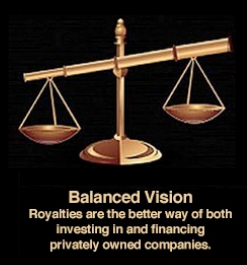
Investing is an activity through which those having available funds seek to increase the value of the invested funds and/or earn income from the employment of the funds.
Getting income from the investment takes the form of being paid by the entity in which the investment was made: interest (rent for the use of the money) , dividends (a sharing of profits earned by the entity in which investment was made) or contractual payments, such as royalties (a percentage of the revenues sold by the entity generating the revenues).
An increase if the value of the company invested in results from either or both the cumulative value of the retained profits earned by the company or the valuation of the company as determined by the last sale of shares of the company. Market valuations being number of shares outstanding, with or without potential dilution adequately reflected, times the price last paid by an investor on an exchange of otherwise. The assumption being made is that an investor could be found to pay the same amount as the last sale, but for all of the shares.
Making the investment better in the case of the shares of a company means increasing the rapidity of earnings growth and the level of the company’s profitability. These good things for the investor are beyond the investor’s control. Therefore, in publicly traded companies, all the investor can do to improve the situation is to do a better job of timing the investment, taking advantage of the volatility of the share price. Great buys are those made when the selling of the shares by other investors abides.
Professionally investing well in the stock of companies require both a correct view of the company’s per share earnings performance and the relative value of the company’s shares versus the broad range of other company’s shares. The successful investment manager must also have a correct view as to the market as a whole, in the optimal timing of transactions. Managing money is not an easy job, which is why so few managers are able to consistently do even just as well as the market averages.
Making investments safer, as measured by not losing any of the money to be invested, is easy to do, but the price of so doing can be very expensive in terms of the net benefit to the investor. The closer the manager gets to making risk reducing arrangements the less will be the net yield of the protected investment. The rule of markets is that the less risk, the less return. Managers can address risk in individual portfolio holdings using puts and calls, or regarding to the portfolio as a whole, by other approaches, all at a price.
Societally constructive means that the investment benefits other than just the investor and possibly the company whose shares have been bought. Apple doesn’t benefit when an investor sells their Apple shares to another investor. Apple would benefit directly if the shares were bought from Apple. In the case of privately-owned companies, the money for development and growth can come from borrowings (not generally available from institutional lenders, without personal guarantees of the controlling shareholders), the sale of equity (reducing the ownership of the founders and other existing shareholders) or debt (usually with use and corporate activity restrictions) securities. No matter of where or how the money comes to the company for growth and expansion, the societal community benefits.
The purchase of common stock (directly or through convertible preferred shares or debt) creates the same problems for the company and primary investors. There is the investors natural expectation and demand for ever-increasing per share profitably. Investors only buy stock in companies with the intention of selling the purchased shares and thus the pressure. Investor benefit from purchasing publicly traded shares is dependent on both the company’s performance and the action of other investors.
Were the company to offer investors revenue royalties, which can be defined as to products and location, with or without minimum royalty payments, instead of stock, the present company owners would retain their ownership percentage of the company and freedom to manage the company as they preferred. Investors can successfully negotiate the terms of a royalty to provide income payments meeting their reasonable needs.
All the royalty investor wants is a growth of revenues. The royalty investor controls the timing of the investment and therefore should not be stressed based on the company’s market valuation. The investor can elect to reduce risk, even though in so doing reducing return, which also improves the company’s ability to negotiate the royalty rate. The investor benefited the community as the royalty issuing company will likely be using more space, hiring more people and serving more customers
The use of royalties in the financing of companies is win/win for all involved.
Arthur Lipper, Chairman
British Far East Holdings Ltd.
chairman@REXRoyalties.com
+1 858 793 7100
©Copyright 2020 British Far East Holdings Ltd. All rights reserved.
Blog Management: Viktor Filiba
termic.publishing@gmail.com
